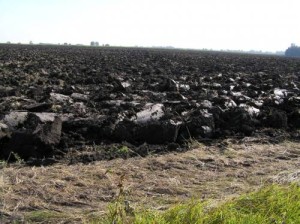Agrochemical passport of a field or land plot! Whose interest is this?

Land is our wealth! And what is it, our wealth?
Unfortunately, quite often our understanding is limited to the concepts of area or territory and terms like chernozem, sand, clay. But regarding the agrochemical passport of the field (land plot), discussions continue on its feasibility. So let’s find out whose interests are represented in this document!
To begin with, a field or land plot (for agricultural purposes) is not only a territory, but also a soil cover that ensures the formation of a certain level of yield of agricultural plants. The level of yield is determined by the state of the soil cover, that is, the content of humus, nutrients, trace elements, water-physical properties and, of course, the content of toxic components (residues of pesticides, heavy metals, radionuclides, etc.). All this set of indicators can be established only on the basis of laboratory analysis of the soil, which is the basis of the agrochemical passport of the field. Its new version, according to the order of the Ministry of Agrarian Policy and food of Ukraine, provides for 25 indicators.
Thus, the agrochemical passport is a high-tech product that allows you to give a clear assessment of the state of productivity (the level of possible yield) and the environmental level of safety. In addition, it provides for entering data every 5-10 years, depending on the type of land use. At its core, this is the patient’s medical record, which is your ground, from which you can unambiguously judge the state of his health, if necessary, establish a diagnosis, and if necessary, apply treatment. Also, it should be taken into account that this is a state-issued document that also has civil law properties and can be used in claim practice. Therefore, we will consider whose interests are represented by the agrochemical passport.
Let’s start with summer residents. These passports primarily make it possible to calculate the optimal amount of fertilizers or meliorants for obtaining high and environmentally friendly yields of vegetables, berries and fruits, which is probably the main goal of gardeners. A passport is also indispensable when selling a dacha plot, because in addition to the location, the buyer is interested in whether the land is fertile. And in the passport, based on agrochemical indicators, the agrochemical score of the soil on a 100-point scale is also indicated. You worked on this site, applied organic and mineral fertilizers, limed and probably improved the quality indicators of the soil – that is, invested money, labor, and material resources in it. Therefore, you have the right to reasonably ask, perhaps even a significant increase in the cost of the site. The same applies to household plots.
Farmers and owners of private farms that operate on their own or related shares are no less interested in conducting an agrochemical survey and periodically updating the indicators in the passport, since only in this way can the state and changes in the soil that are a consequence of Management be assessed. After all, the land is property and will go to descendants. Unlike a car, which is likely to become unusable over time, the soil-with proper handling, retains its positive properties and can even improve.
And the widest audience is the owners of units that provide their allotments for rent. After conducting a survey and receiving an agrochemical passport of a field or land plot, you have a document that records the real indicators of the state of your soils. By transferring it to the tenant, you usually agree on the condition that your property should return from the lease in no worse condition. Namely, the passport is the only way to assess the quality of soil cover before the transfer and when returning from the lease of a land plot.
Finally there are tenants who take your land plot for the purpose of using it in commodity production and making a profit. For real owners, an agrochemical passport is a guarantee of physical and moral peace of mind before landlords (owners of shares). Ensuring an appropriate balance between the removal and receipt of nutrients in the soil, using modern soil protection technologies, spending appropriate resources on this, the tenant, taking into account the data of the agrochemical passport, plans their effective distribution, makes a profit and with periodic control – confirmation of proper handling of the property entrusted to him by citizens. At the same time, for non-successful tenants who have taken your land for their own benefit due to soil depletion, the Civil Law relations mechanism laid down in the agrochemical passport will allow the owners to claim compensation for losses that were caused to your soil.
And the last argument that concerns all categories of participants in land relations. In case of emergency situations (dust storms, water erosion (soil flushing), man-made disasters accompanied by chemical, biological, radioactive contamination) or inadequate behavior of neighbors and unauthorized persons, inept use of chemical plant protection products, which led to contamination, or deterioration of the soil cover, it is the presence of an agrochemical passport of the field (land plot) that will allow you to bring to justice the culprit or vice versa to avoid it (in case of force majeure) in an objective legal field. And with the introduction of the agricultural land market, the agrochemical passport will be a reliable and measurable basis for concluding mortgage transactions, insurance coverage and compensation for losses, obtaining loans, etc.
Therefore, we talk about the interests and agrochemical passport of the field, land plot.
Mykola Zinchuk
Volyn branch of the state institution “Institute of soil protection of Ukraine”,
Lutsk city, Glushets str., 49
tel. (0332) 783292
e-mail: ntcgrunt@ukr.net








